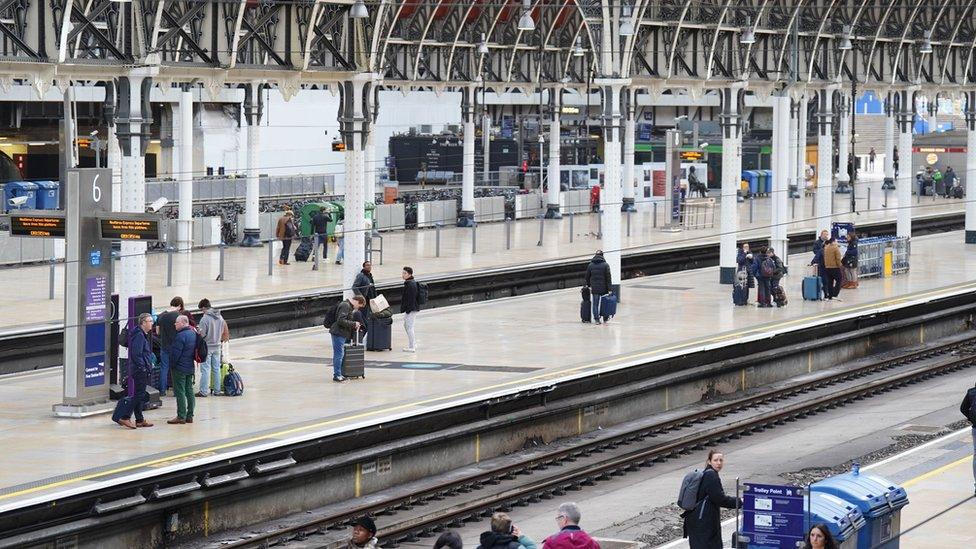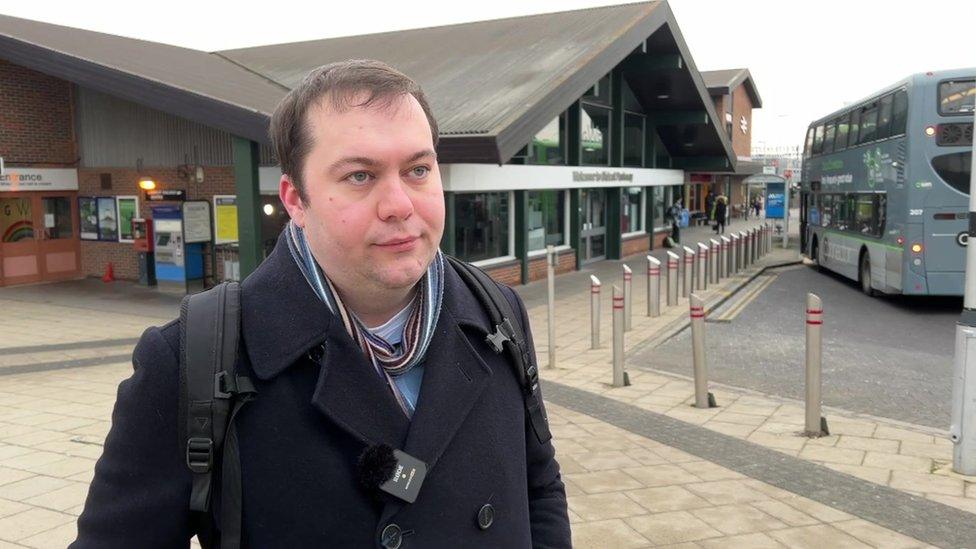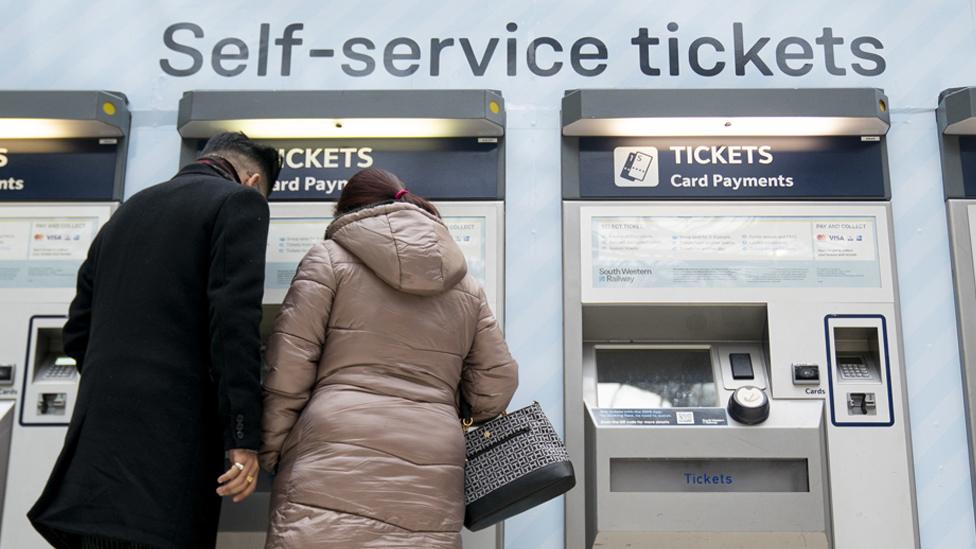Commuter from Oxford gets data on Reading to Paddington delays
- Published

Figures for the year before November 2023 show journey issues every day between Reading and Paddington
A frustrated commuter has received figures that he said show how disrupted his rail journeys have been.
Matt Strachan, from Oxford, made a Freedom of Information request (FOI), external for data on disruption between Reading and Paddington.
Figures from the year before November 2023 show journey issues every day.
Network Rail said it was targeting the Thames Valley area and working closely with the train companies "to deliver a safe and reliable railway".
The Rail Regulator is currently investigating poor performance on Network Rail's Wales and Western Region.
It is the only region of Network Rail where performance is getting worse.

Paul Gentleman from Great Western Railway said his team is working hard with Network Rail
Mr Strachan, who commutes from Didcot to London and put in the FOI, believes it is an "urgent" issue.
"I just feel like every time I'm commuting there's another excuse," he said.
"I'm delayed continuously throughout my journeys and it just feels like there needs to be something to address it."
There were 361 days where Network Rail was responsible for issues which delayed passengers.
Points failures, which are the junctions where trains move from one track to another, caused 200 days of disruption.
Disruption was seen on 175 days due to broken or damaged rails, 97 days because of signal failures and 90 days due to damaged overhead power wires.
There were also 31 days of industrial action.
Great Western Railway (GWR) had 363 days of disruption.
The rail industry normally records the impact on passengers by looking at the number of minutes that they are delayed.
By this measure, Network Rail is responsible for two thirds of delays on this route, and the train operators are responsible for one third.

Matt Strachan commutes from Didcot to London and made the request under the Freedom of Information Act
Mr Strachan said: "I was quite surprised that it was that high, I knew there was a big problem but it seems like there was a problem every single day.
"Points failures 200 times in a year is a ridiculous stat, it definitely shouldn't happen.
"I'm hoping it will draw some attention and get some more eyes on that issue."
He added that with fares going up and reliability going down commuters were "getting the worst of both worlds".
Rob Cairns from Network Rail said: "We've already brought in external experts to help us get to the bottom of the issues delaying trains, and we have plans in place to improve the service for passengers."
Paul Gentleman, from GWR, said: "We're working very hard with the team at Network Rail and we very much welcome their efforts to improve the performance, especially on that vital rail corridor."

Follow BBC South on Facebook, external, X, external, or Instagram, external. Send your story ideas to south.newsonline@bbc.co.uk.
Related topics
- Published18 January 2024

- Published17 January 2024
